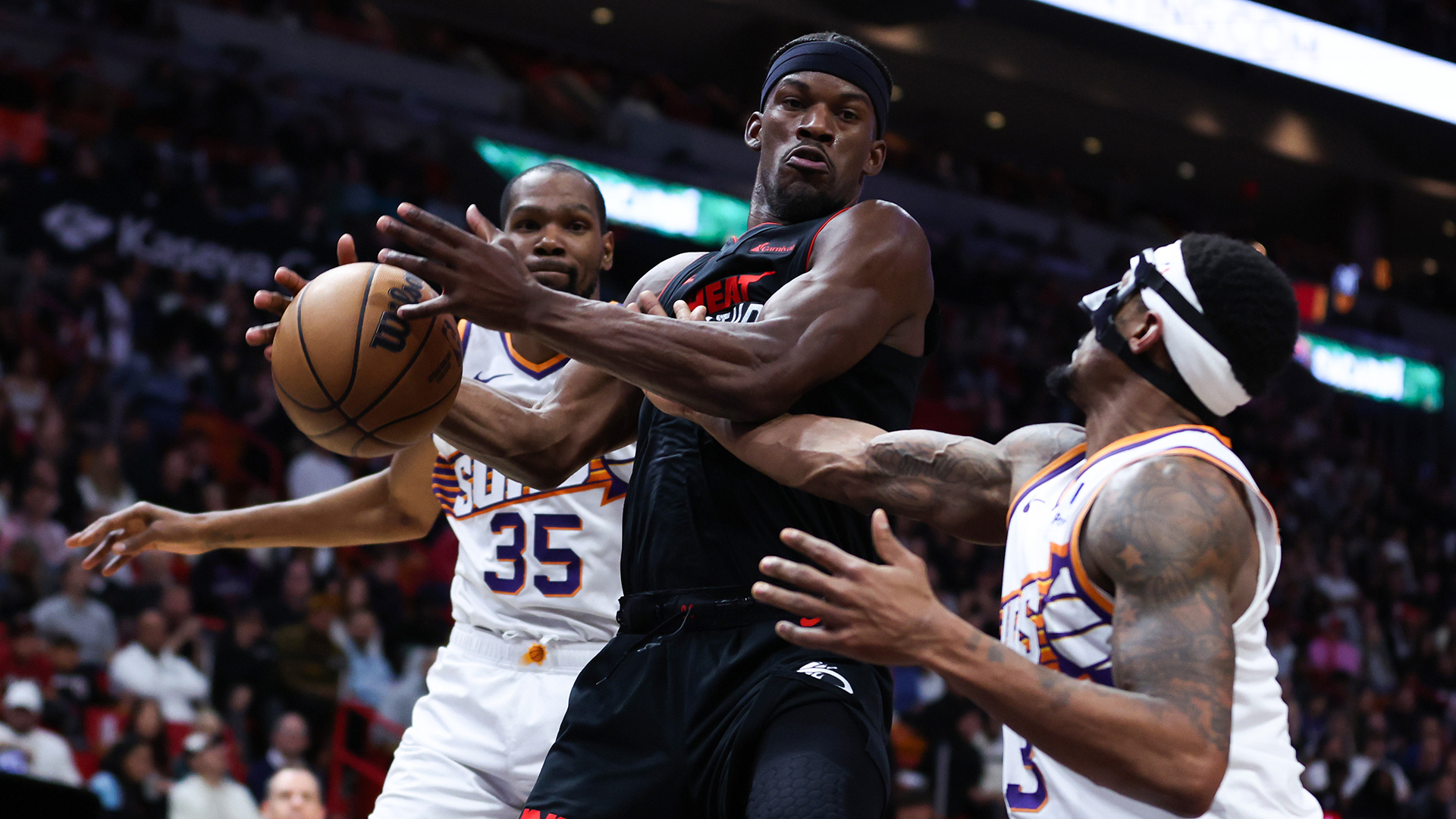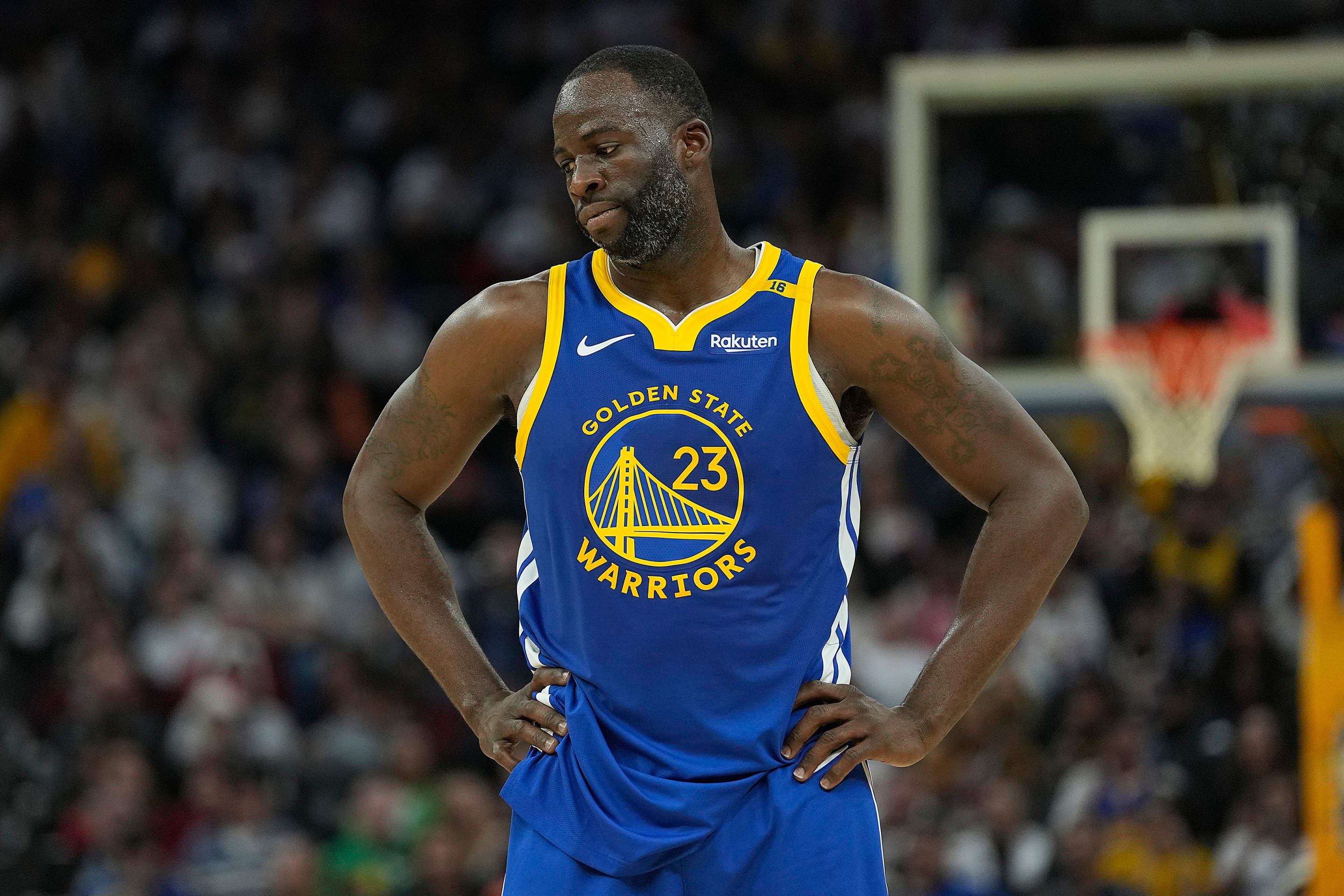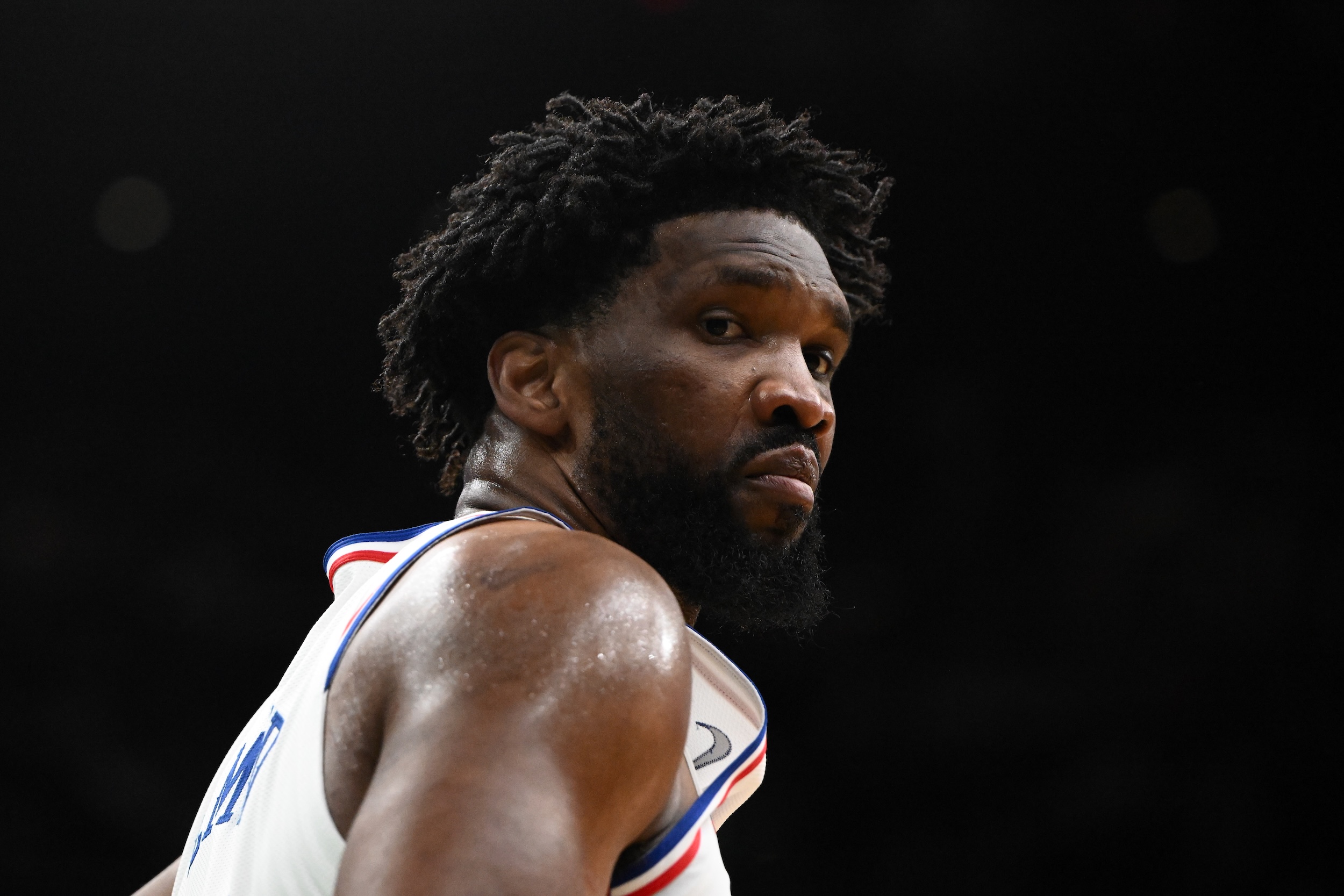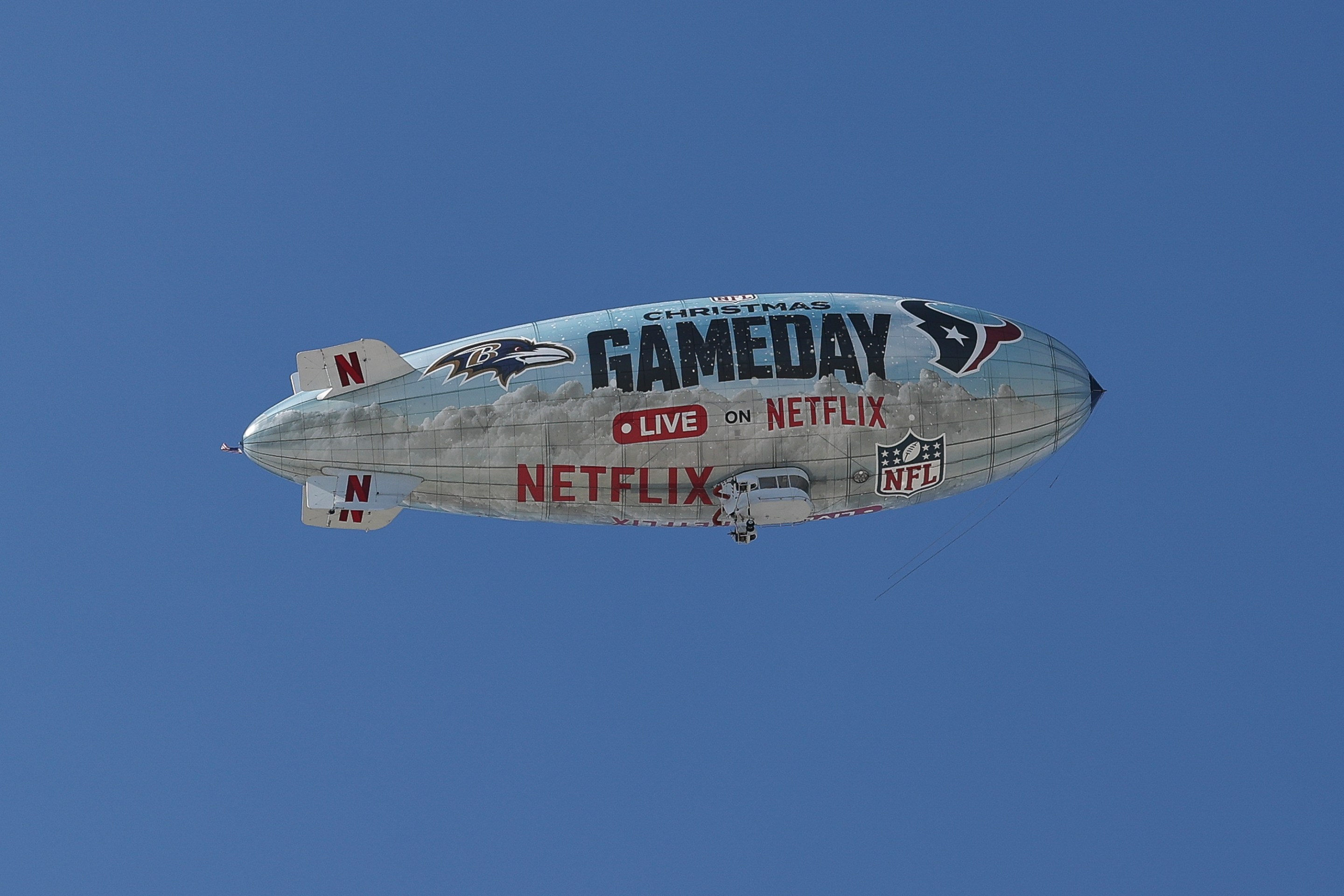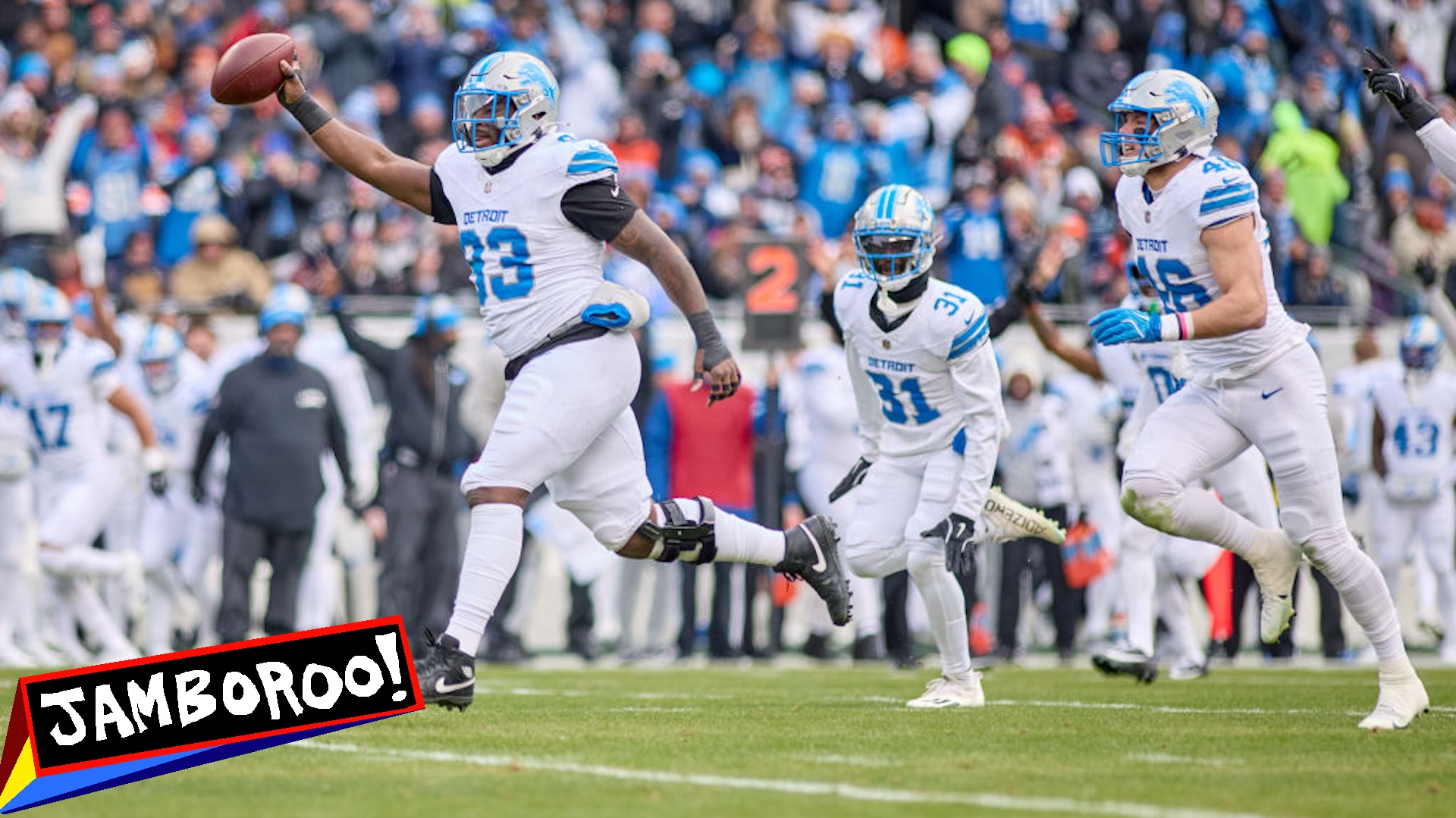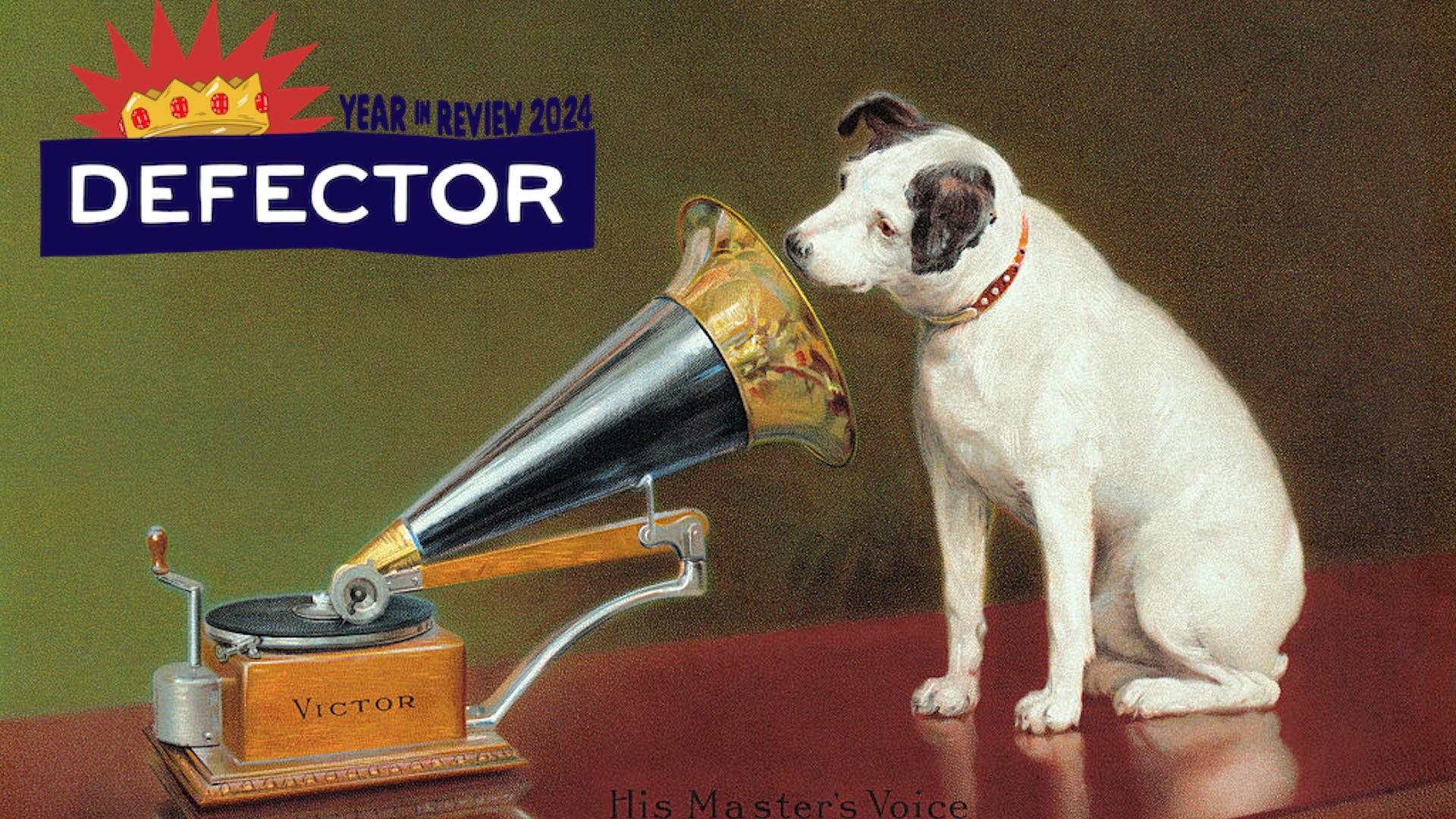Just by nature of what I do here at Defector, sometimes I am wrong about something in a way that creates a lasting, bylined record of my wrongness. It makes sense: When I write about a team or player in any sport, it is usually because they are in a period of interesting ascendancy. When their fortunes turn after I write about them, sometimes immediately so, and sometimes so quickly that it seems as if it's happened because I wrote about them, it's generally just because that ascendancy has ended, and they are back to normal. This happens, and is natural; sports seasons are long and grueling beasts with many phases. So I don't beat myself up if I write about a team that immediately goes into the shitter. I'm not clairvoyant, and this isn't gambling advice. (Stop gambling!)
That said, none of this explains how badly I have seem to have jinxed the Miami Heat over the last two weeks.
Since I wrote about Tyler Herro's post-injury resurgence and Miami's 8-2 record in games in which he scored 20-plus points, the Heat have lost every single game they have played, most recently dropping Monday night's home game against the Phoenix Suns, 118-105. Their losing streak now sits at seven games, with the team's last win coming on Jan. 15 to the Nets. In that time, Miami has been held under 100 points on offense three times, and have only hit the 110 mark once, in a 143-110 loss to Boston on Jan. 25. They are giving up an embarrassing 118 points per game, which if you recall the bit from just now about how much they're scoring is "not what you want." Their average margin of defeat is 16.3 points.
Everything is bad, essentially, and it's coming from all angles. Since I wrote about Herro most recently, let's start with him. Since his 29-point game against Brooklyn, he has only cracked 20 points once—that was in Miami's closest loss in this streak, a 109-108 loss to Atlanta on Jan. 19—and has appeared to lose his shooting touch entirely. In a way, his struggles validate my previous article; if Herro struggles as badly as he has, Miami has a tough time beating opponents. I just didn't see this swoon coming immediately.
Elsewhere, the addition of Terry Rozier has been a net negative so far. That failure goes beyond his own personal struggles, mighty though they have been. In four games with Miami, the former Hornets guard has put up three stinkers, only coming up somewhat big against the Suns with a 21-point "explosion." Otherwise, he has shot around the 30 percent mark from the field, and his lack of height—he's listed at 6-foot-1, which seems generous—has made a small team even smaller.
Rozier and Herro are both starting these days, but they probably should not be. The starting lineup on Monday night featured those two poor defenders, along with Haywood Highsmith—who is good on defense but close to a zero on offense—alongside the star duo of Jimmy Butler and Bam Adebayo. That Adebayo continues to be the tallest player on the floor for Miami is a longer-term problem, one that exhausts the 26-year-old in all the ways you'd expect; it seems, in this case, to have led to his traditional midseason slump. Butler has been his usual self for the most part, but has disappeared a few times during this streak, failing to crack 20 points four times around three 25-plus games.
Something important to note here is that Jaime Jaquez Jr., Miami's incredible rookie find, missed two weeks during the losing streak due to a groin injury, and only rejoined the rotation on Saturday against the Knicks. He's still finding his feet again after the layoff, and has been a non-factor in the two games since returning, but he helps give Miami size and play-making that they are currently missing. That's a lot to put on a rookie, though, especially one who is decidedly a role player and probably not a burgeoning star. But that's how bad things have gotten in Miami.
Where's the fix here? That's what Erik Spoelstra, fresh off his massive contract extension, must figure out between now and the playoffs. Miami is (probably) not in danger of missing the play-in games, but that's more down to how bad the bottom of the Eastern Conference is. Still, being able to lose seven straight and still be in seventh place with a 4.5-game cushion from missing out does give Spoelstra time to experiment with rotations and strategies. Perhaps he will realize that the Rozier-Herro experiment doesn't work, and bump one to a staggered bench role would help inject the backups with some pace and scoring. Jaquez getting back into the mix would also help alleviate some of those size disadvantages for Miami; last year's playoff hero Caleb Martin could catch fire.
That's a lot of speculation, though, which is another part of what makes what I do here a bit more difficult. Sports are fluid, and the NBA season in particular is too long and too topsy-turvy to prognosticate about with any certainty. That goes doubly when trying to figure out how a team that historically doesn't care much for the regular season, like Miami, will perform before the playoffs. I comfort myself, both as a writer and a Heat fan, in thinking about how bad last year's team was in the regular season; you might have heard that they still made the NBA Finals from the eighth seed.
This team feels a bit different, though, at least right now. That's because the problems are less due to effort or poor shooting, and more about roster construction. There's no savior here, although someone like Martin recapturing his world-beating postseason form for the regular season would obviously help. Instead, Miami will have to make tactical changes to mask flaws, and that's never a spot that a proud team with title aspirations, meager though they might be, wants to be in as the calendar turns to February. I'm not sure if Spoelstra will learn something from this stretch of bad games that unlocks his roster's potential, but I am sure that I have learned a valuable lesson: Basing any articles on what Miami will do in the regular season is a fool's errand, and I should be prepared to eat shit whenever I do so.
